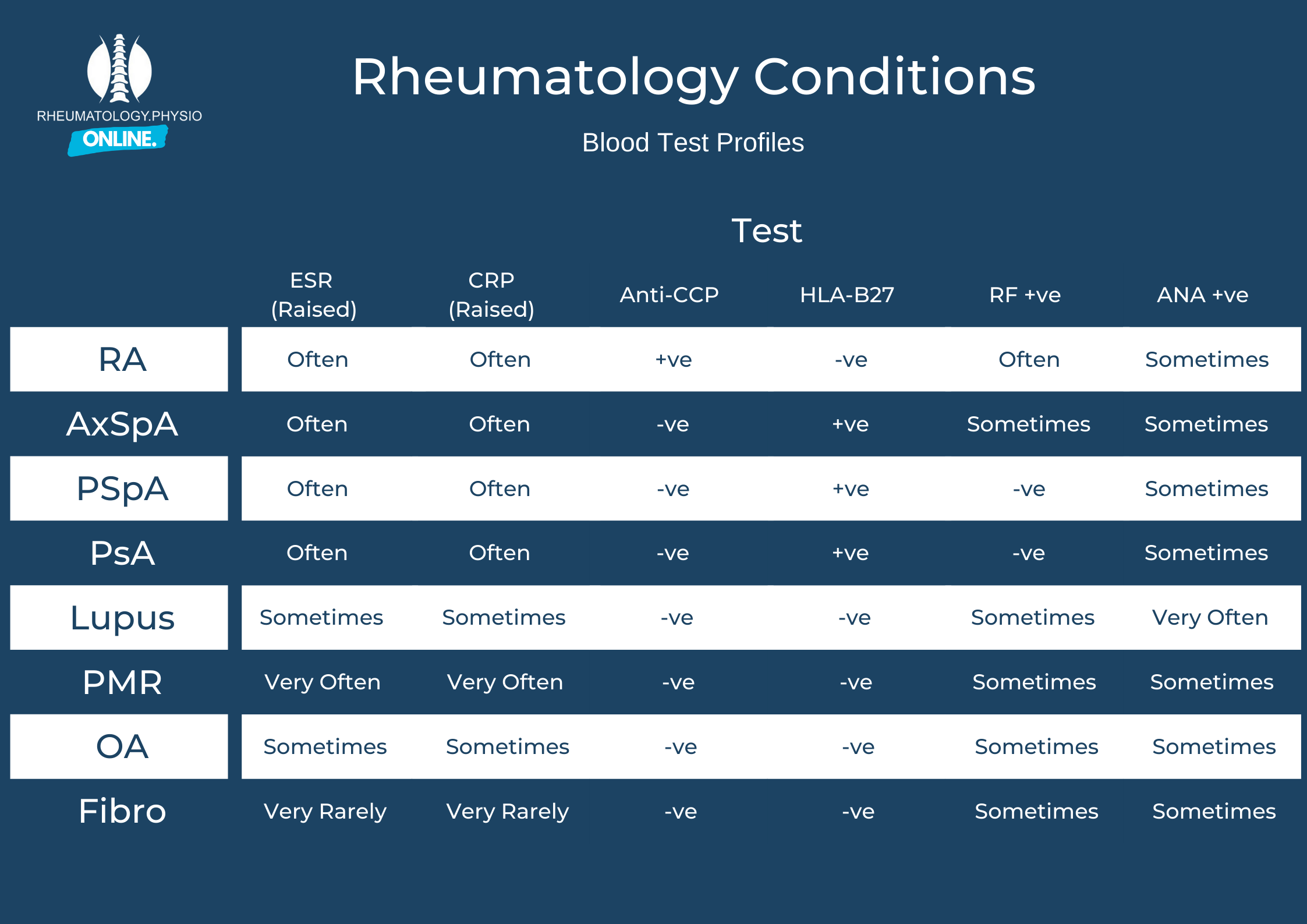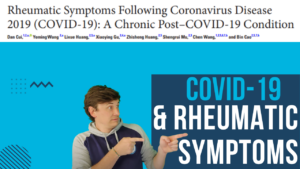I have been meaning to update this blog for a little while and last blogs legend Claire Paling has nudged me into it. We have the return of the now recurrent features “legend of the blog” and all the way at the end the musical accompaniment. We will cover the blood testing for Rheumatology Conditions, likely results and the profiles of the more common conditions. We go into tons of depth abou the nuance of ordering bloods on my recorded and in person courses
Please consider heading to the shop to find more resources and supporting me to continue this hairbrained project! You can also listen to all of my blogs as podcasts subscribe to your preferred channel HERE
As usual feedback is greatly appreciated and any further reading for me please send it my way!
PLEASE REMEMBER – THIS BLOG IS NOT A REPLACEMENT FOR CLINICAL REASONING, IF YOU ARE UNSURE GET ADVICE
Legend of the Blog
This weeks legend is Elaine Miller, she has single handedly changed my understanding of so many things from Pelvic Health to communications. Pelvic Health is not a fringe specialism that MSK (or Rheum) Therapists can get away with ignoring. Check her website and Follow her to learn all you can!
Introduction
Blood tests are a vital component when it comes to clinical reasoning in Rheumatology. Not everyone has the authorisation to order bloods for their patients but a working knowledge remains important to help you in management of a suspected rheumatology patient. It is important to remember here that interpretation is nuanced, requires clinical correlation and that formal diagnosis remains the role of Rheumatologists with this group of patients. Conditions will always remain “suspected” until investigation by a Rheumatologist.
Routine blood tests will always be carried out for suspected Inflammatory Arthropathies such as Rheumatoid Arthritis and Spondyloarthritis. These will consist of a Full Blood Count, inflammatory markers, biochemical tests and immunological tests. This blog will concentrate on the inflammatory markers and biochemical tests. It is by no means exhaustive and is designed to help MSK Therapists to order appropriate blood tests. Again I reiterate, if you are unsure what to order, please seek advice. Also, just because we can order blood tests doesn’t mean we should…
Inflammatory Markers
These will often be raised in Inflammatory Arthropathies but remember many, many other things can cause increased levels of inflammatory markers in the blood (e.g. obesity, acute injury, infection) and a negative result does not rule out a suspected condition on its own.
ESR (Erythrocyte Sedimentation Rate) – non specific test of inflammation
Normal range – Men 0-14, Women 0-20. Note that there is some variance with age so proceed with caution when interpreting if the levels are near to the top of these ranges.
CRP (C-reactive protein) – non specific test of inflammation
Normal range – <5. Raised 5-15. Significantly Raised 15+
Note that this is very reactive to any activation of the immune system.
Immunological Tests
Immunological tests have much more utility in diagnosis and can have value with prognosis in inflammatory arthropathies. Just a reminder that these still have diagnostic limitations. I would recommend this book by Drs Al-Sukaini, Azam and Samanta (https://www.amazon.co.uk/Rheumatology-clinical-handbook-medical-students/dp/1907904263/ref=sr_1_1?ie=UTF8&qid=1538037053&sr=8-1&keywords=rheumatology+a+clinical+handbook) as it has a brilliant breakdown of the sensitivity and specificity of these tests for the various diagnoses.
Rheumatoid Factor (RF) – 15-20% of RF+ve patients have no associated conditions and it is prognostic rather than diagnostic in RA.
Rheumatoid Arthritis – Sensitivity 60-90%, specificity 70-80%, higher values prognostic of poorer outcome.
Psoriatic Arthritis – A negative RF result has diagnostic utility in PsA (90% -ve)
Anti-cyclic citrullinated peptide (Anti-CCP)
Rheumatoid Arthritis – highly specific 95%+ for diagnosing RA
HLA-B27 – Note present in roughly 8% of the population
Spondyloarthritis – Men 90%+ve, Women 85%+ve, African Americans may be as low as 50%+ve
Psoriatic Arthritis – 40%+ will be positive for the HLA-B27 gene
ANA (anti-nuclear antibody) – Approximately 95%+ve in Lupus
Rheum condition profiles

End
I hope this adds some clarification to the challenging topic of Rheumatology blood tests, remember that you will still need to order other investigations for differential diagnosis reasons and this whole mixture is very complex.
Please do provide feedback so that I might grow and improve and see you on the next blog!
Music Choice: Paramore – “All We Know”
“We’ve tried so hard to understand
But we can’t…”
Further interesting information on Claire Paling’s Tweet Threads here:
Thread 3 on basics of blood tests.
THE FULL BLOOD COUNT
Follow the thread to learn with me re what clues the FBC gives us about pathology. 👇👇👇
Preceding threads if you missed them 😊
Thread 1: https://t.co/jksqNquwlA
Thread 2: https://t.co/5TsqNhmQTt pic.twitter.com/60kaYqn0au— Claire Paling Physio (@PalingClaire) December 6, 2020


